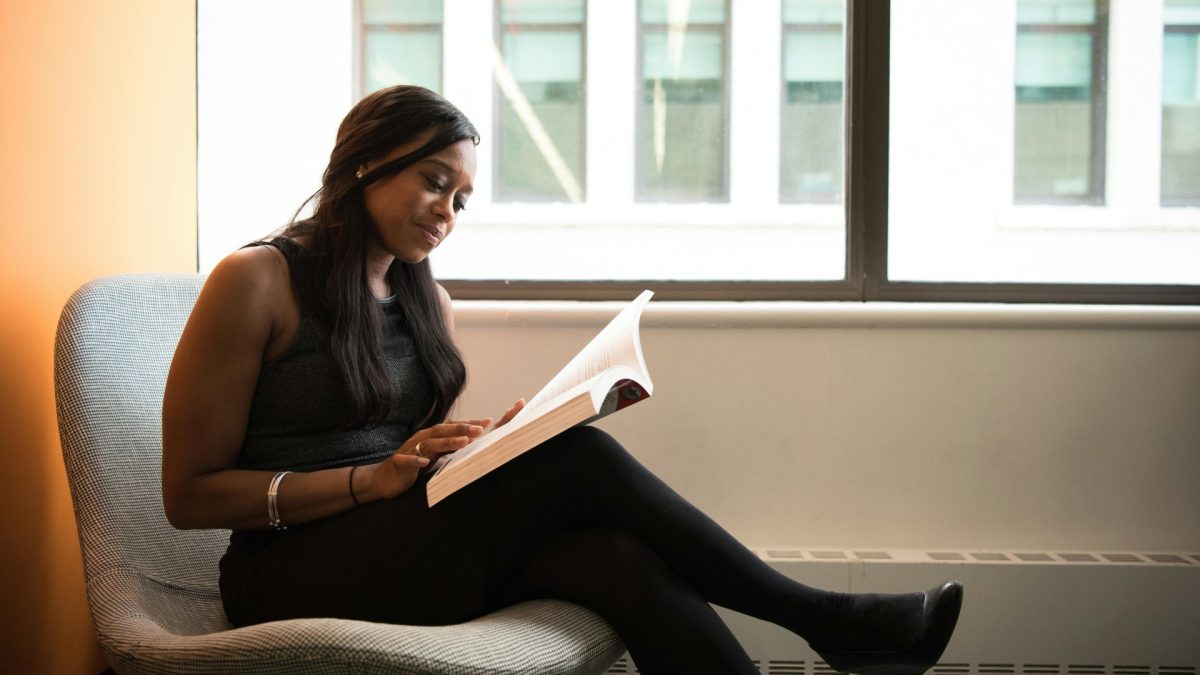Transitioning Well’s top recommended reads for 2024
Throughout the year, we asked our team at Transitioning Well to share the content they’re enjoying the most with our newsletter subscribers.
If you’re looking for that insightful read, or thought-provoking content for the holiday season, here’s some inspiration for you.
Liz and Justine recommend:
Atomics Habits by James Clear
Elizabeth: I have been reading Atomic Habits by James Clear – it’s not new, but it is just a very simple way of making changes stick.
In terms of application, for me it’s about doing those small things that nudge you where you want to be. It’s been good in terms of providing practical strategies and ways to improve incrementally.
Justine: I highly recommend taking the time to read James Clear’s Atomic Habits. It asks some important questions, such as: What are the core values that drive my life and work? How am I living and working with integrity right now? How can I set a higher standard in the future?
Great reading for anyone looking to create simple, achievable habits to positively impact life and work.
Camille recommends:
The Body Keeps Score by Bessel Van Der Kolk
Camille: The Body Keeps Score is a refreshing read about how adverse experiences in life can affect us so deeply, potentially without us even realising. How we show up in our bodies and minds has a direct relationship with how we perform and engage at work. Although this book has a focus on ‘trauma’, the take aways are fascinating and insightful about the mind-body connection, and provided me with a unique insight into how individuals within the workplace who are going through (or have been through) stressful life events, including how they show up in the workplace!
Gagan recommends:
The Art of Authenticity by Karissa Thacker
Gagan: I’ve found The Art of Authenticity a valuable read. I loved that it unpacks what it really means to be authentic and what gets in the way.
It’s full of fantastic ideas and practical conversations guides on how to bring your full authentic self to work and life, especially for leaders. And spotlights what can get in the way for all of us (including thinking that we are either all authentic, or not at all).
On Grief & Grieving by Elisabeth Kübler-Ross and David Kessler
Gagan: I picked this book up to nurture the part of me that is very much a psychologist and enjoys working with the ‘messy’ side of life, just as much as my work requires me to work with the bright and functioning side of work.
There were many tears and moments of deep reflection as I read this book. Having experienced personal loss in life – of loved ones, opportunities, and expected outcomes/pathways – this book brought these experiences to the surface in a way that was gentle and comforting.
It detailed what the five stages of grief actually look like for the person experiencing them, through the stories of people who have experienced each stage of grief in their own way. This book is not a light read and comes with a trigger caution, but it humanises and unpacks a difficult subject that we all face in life.
Rachael recommends:
The Year I Met My Brain by Matilda Boseley
Rachael: The Year I Met My Brain is funny, well researched and practical. When Matilda was diagnosed ADHD, she quickly discovered that most of the information ‘out there’ is for parents of young boys. Being neither a parent, nor a boy, she wrote the book she wished she had in those early days. Whether you’re diagnosed, suspect you’re ADHD, or are trying to understand a neurodivergent family or team member – this is an excellent read.
Mark recommends:
The Coming Wave by Mustafa Suleyman
Mark: The Coming Wave by Mustafa Suleyman is an insight into future of AI and Biotech. It is compelling reading – at once exciting and frightening.
Upon reading this book, I am sure we are living through a new phase of humankind’s wonderous ability to create and solve problems. The book explores the conundrum of how AI and biotech, combined, produce wondrous opportunity and almost unmanageable challenges. That said, I am not sure whether our evolution is exhilarating or the dawn of destruction. Whatever the (very near) future holds, I feel better prepared to ponder both contingencies.
Tess recommends:
Languishing: How to Feel Alive Again in a World That Wears us Down by Dr Corey Keyes
Tess: I highly recommend reading Languishing: How to Feel Alive Again in a World That Wears Us Down. It is validating reading, as it affirms that even if you do not meet the criteria for a mental disorder or other condition, you may be experiencing ’languishing – the void between depression and flourishing’.
Within this book, you can assess whether you are languishing. It also provides an overview of the five vitamins that, if taken, can improve functioning and foster flourishing. The vitamins include enhancing acceptance, autonomy, connection, competence, mastery and mattering.
Maggie recommends:
The Fearless Organisation by Amy Edmonson
Maggie: The Fearless Organisation, by Amy Edmonson (the Novartis Professor of Leadership and Management at the Harvard Business School) is all about psychological safety in the workplace.
What I like about this book is the author’s case study examples on times a workplace hasn’t been psychological safe and how she delves into the downsides of that, as well as addressing what you can do to create psychological safety in the workplace in order to thrive.
Sarah recommends:
Marriage Minute from The Gottman Institute
Sarah: I love Marriage Minute, an email newsletter from The Gottman Institute that can improve your relationship with a digestible, bi-weekly dose of helpful tips and tricks. Over 50 years of research with thousands of couples has proven a simple fact: small things often can create big changes over time.
In the busyness of life – I often find with all the competing demands of work and life, my relationship with my partner often takes a back seat. These bite size pieces that land in my in box a couple of times every week have been really timely about making sure I find practical ways to stay connected.
At Transitioning Well, we know that living well helps us to work well and vice versa. Ensuring I take the time to invest in my relationship with the love of my life helps me to be a better person in life and work.



